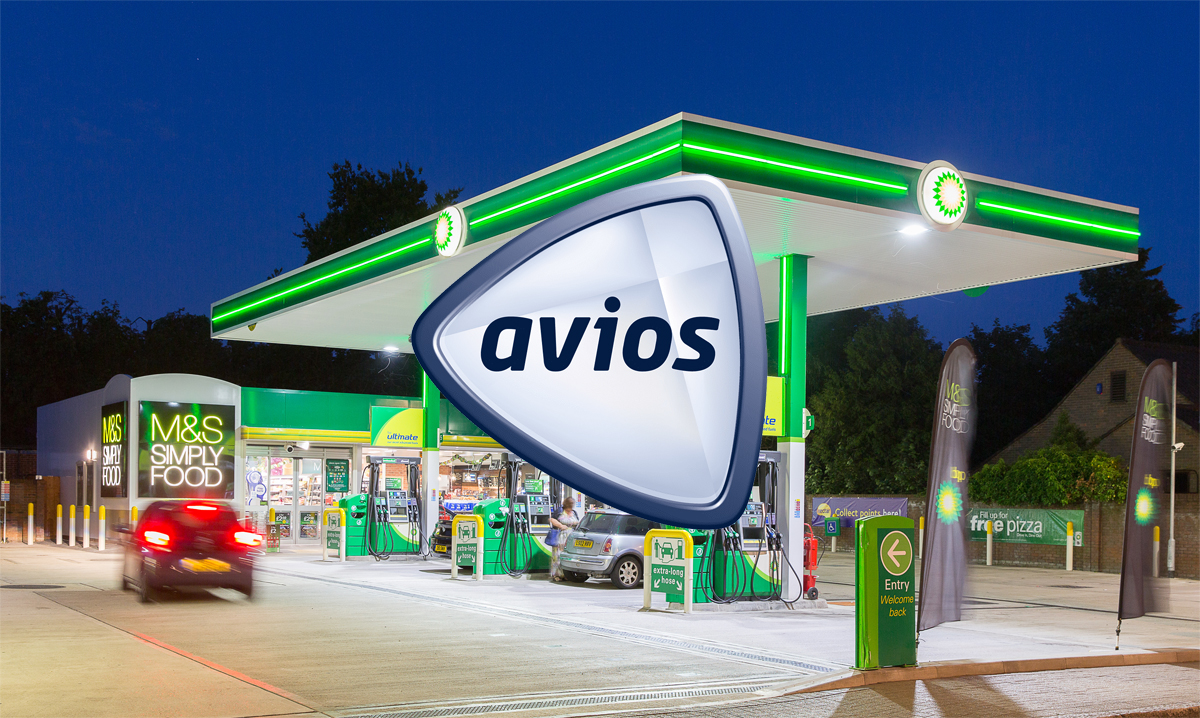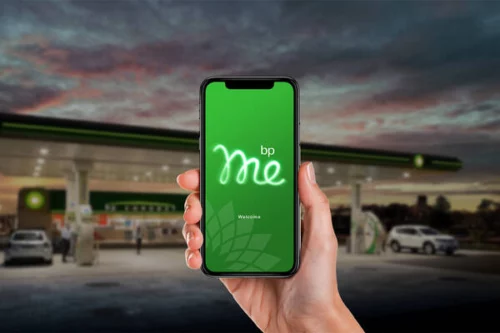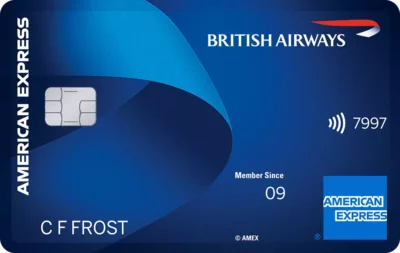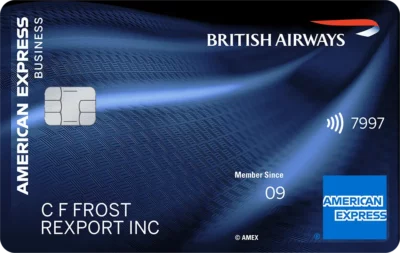You can soon earn Avios on fuel with BPme Rewards – how will it work?
Links on Head for Points may support the site by paying a commission. See here for all partner links.
It was announced during the IAG half-year financial results presentation on Friday that Avios is launching a UK partnership with BPme Rewards.
I’m not sure if the IAG Loyalty team knew this was going to be announced or not.
It hardly moves the needle in terms of exciting the financial community so there was no need to include it, and it has taken the wind out of Avios’s sails in terms of being able to do a big unveiling.

Petrol loyalty in the UK is a mess
Before we look at BPme Rewards, it is worth remembering that the UK’s petrol retailers have never managed to find a successful loyalty formula:
- BP withdrew from Nectar in 2019, launching BPme Rewards which did NOT allow transfers into any other points schemes (clearly that one didn’t work out)
- Esso withdrew from Tesco Clubcard in 2019 but then moved across to Nectar (and, confusingly, it continues to award Clubcard points at Esso garages which have a Tesco store attached)
- Shell closed Shell Drivers Club – which was an Avios partner – and launched Shell Go+ which is not points based
- Texaco withdrew from its Virgin Atlantic partnership
Why does petrol loyalty not work in the UK?
It’s hard to know why petrol loyalty schemes have never worked:
- Because it is a commodity product which people buy purely on price?
- Because the price is displayed in huge numbers at the forecourt, which makes it harder to convince yourself to pay more elsewhere for loyalty benefits?
- Because there is no ‘service’ element in buying petrol – you even pump it yourself – so what are you loyal to?
- Because the rewards are so poor compared to what you spend? You can’t blame the garages for this, though, because the majority of the price of fuel is tax and profit margins are very low.
- Because people buy purely on convenience to where they live / work / shop which trumps everything else?
- Because most people are spending their own money, not their employers, and are more concerned about total value (product price + loyalty benefits) than just the benefits?
Whatever the answer, will Avios and BPme Rewards be able to succeed where all the concepts I listed above have failed?

How does BPme Rewards work?
The BPme Rewards website is here.
It’s worth noting that there is a 500 point bonus at the moment for registering. I obviously don’t know if this offer will go up or down or stay the same by the time the Avios partnership launches.
You cannot register on the website without first visiting a BP garage. You need to pick up a temporary card and then register online using the number on the card.
However, you CAN register instantly by downloading the BPme app to your smartphone. You receive the 500 points instantly.
To refer or not to refer?
You receive an extra 250 points if you are referred by a friend and add their referral code code during registration. Your friend will also receive 250 points. These points are not instant – you only receive them after your first BP transaction. My code is 000Q4QEC (three zeros and then letters). No-one can earn more than four referral bonuses per month.
However …..
As part of my research for this article, I signed up myself WITHOUT a referral and my wife WITH a referral.
I received the following new member offer worth 550 bonus points on my first four fills:
My wife, who was referred, did not get this. It is possible that, if BP isn’t forced to pay out 500 points (split between the new and referring member) as a referral bonus, it offers the new member this 550 points offer instead. The cost to BP is virtually the same either way.
You are probably better off not using a referral link unless the referral comes from another family member.
How do you earn BPme Rewards points?
The programme is easy to understand, which is good. Unfortunately, it isn’t exceptionally generous.
The ‘earning’ page of the website is here but you need to dig into the FAQ to find the details. You earn:
- 1 point for every litre of regular fuel purchased
- 2 points for every litre of Ultimate fuel purchased
- 1 point for every £1 spent in a BP forecourt shop
Some, but not all, fuel cards are exempt from points earning. You cannot earn in the shop if it is run by a major national brand eg Sainsbury’s, Tesco, Morrisons etc.
How do you spend BPme Rewards points?
200 BPme Rewards points are worth £1.
You can use your points to pay for fuel, car washes or BP store purchases, or redeem them for gift vouchers for retailers such as Amazon. You get the same 0.5p per point irrespective.
The ‘spend’ page of the BPme website is here.
Is this good value?
No, which is why BPme Rewards has failed to gain traction.
A typical litre of unleaded fuel in the UK costs 127p at a supermarket and 130p at a branded garage. Assuming 130p per litre at BP, you are getting a return of just (0.5p / 130p) 0.38% of your spending.
With the best will in the world, no-one gets excited about a 0.38% return on their spending.
In a BP forecourt store, you are getting a return of 0.5% on your groceries based on one point per £1.
Not only are the rewards poor but there is no gamification element. It has the same structural issue as Nectar. Your points are worth the same irrespective of how many you have, and irrespective of where you use them.

How will BPme Rewards points convert to Avios?
Good question.
1:1 is too generous – you would be ‘buying’ Avios for 0.5p each, compared to using your points for shopping vouchers. Such a transfer rate would require BP to take a financial hit to subsidise the Avios cost. It’s not impossible, however, if BP is keen to attract BA’s customer base which is likely to drive bigger cars and be less price sensitive than average.
2:1 is more obvious but this is possibly not generous enough. You would be ‘buying’ Avios for 1p each. It certainly isn’t terrible – Heathrow Rewards uses the same 1p conversion rate – but in the current climate I think BP customers may prefer 1p of cash to 1 Avios.
3:2 is probably the economic sweet spot but has the downside of being a bit clunky and harder for members to get their heads around.
What can you do now?
If you are not a BPme Rewards members, you might want to join now and lock in the 500 bonus points for registering. If there is a more generous offer when the Avios partnership launches, you can always abandon your account and open a new one.
If you are already a BPme Rewards member, do not redeem any points for now. Wait and see what the Avios conversion rate turns out to be. It is very likely that there will be some sort of launch bonus, so even if the deal is a bit ‘meh’ in the long term it may well be attractive for the first few weeks.
We’ll keep you in the loop with the Avios and BPme Rewards partnership as it develops.
PS. If you are not a regular Head for Points visitor, why not sign up for our FREE weekly or daily newsletters? They are full of the latest Avios, airline, hotel and credit card points news and will help you travel better. To join our 65,000 free subscribers, click the button below or visit this page of the site to find out more. Thank you.

How to earn Avios from UK credit cards (April 2025)
As a reminder, there are various ways of earning Avios points from UK credit cards. Many cards also have generous sign-up bonuses!
In February 2022, Barclaycard launched two exciting new Barclaycard Avios Mastercard cards with a bonus of up to 25,000 Avios. You can apply here.
You qualify for the bonus on these cards even if you have a British Airways American Express card:

Barclaycard Avios Plus Mastercard
Get 25,000 Avios for signing up and an upgrade voucher at £10,000 Read our full review

Barclaycard Avios Mastercard
Get 5,000 Avios for signing up and an upgrade voucher at £20,000 Read our full review
There are two official British Airways American Express cards with attractive sign-up bonuses:

British Airways American Express Premium Plus
30,000 Avios and the famous annual 2-4-1 voucher Read our full review

British Airways American Express
5,000 Avios for signing up and an Economy 2-4-1 voucher for spending £15,000 Read our full review
You can also get generous sign-up bonuses by applying for American Express cards which earn Membership Rewards points. These points convert at 1:1 into Avios.
SPECIAL OFFER: Until 27th May 2025, the sign-up bonus on the ‘free for a year’ American Express Preferred Rewards Gold card is increased from 20,000 Membership Rewards points to 30,000 points. Points convert 1:1 into Avios (30,000 Avios!) and many other programmes. Some people may see even higher personalised offers. Click here to apply.
SPECIAL OFFER: Until 27th May 2025, the sign-up bonus on American Express Platinum is increased from 50,000 Membership Rewards points to a huge 80,000 points. Points convert 1:1 into Avios (80,000 Avios!) and many other programmes. Some people may see even higher personalised offers. Click here to apply.

American Express Preferred Rewards Gold
Your best beginner’s card – 30,000 points, FREE for a year & four airport lounge passes Read our full review

The Platinum Card from American Express
80,000 bonus points and great travel benefits – for a large fee Read our full review
Run your own business?
We recommend Capital on Tap for limited companies. You earn 1 Avios per £1 which is impressive for a Visa card, and the standard card is FREE. Capital on Tap cards also have no FX fees.

Capital on Tap Visa
NO annual fee, NO FX fees and points worth 1 Avios per £1 Read our full review

Capital on Tap Pro Visa
10,500 points (=10,500 Avios) plus good benefits Read our full review
There is also a British Airways American Express card for small businesses:

British Airways American Express Accelerating Business
30,000 Avios sign-up bonus – plus annual bonuses of up to 30,000 Avios Read our full review
There are also generous bonuses on the two American Express Business cards, with the points converting at 1:1 into Avios. These cards are open to sole traders as well as limited companies.

American Express Business Platinum
50,000 points when you sign-up and an annual £200 Amex Travel credit Read our full review

American Express Business Gold
20,000 points sign-up bonus and FREE for a year Read our full review
Click here to read our detailed summary of all UK credit cards which earn Avios. This includes both personal and small business cards.




 Rhys
Rhys 





Comments (114)